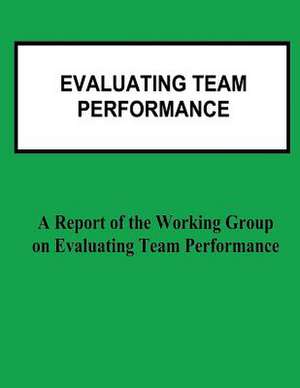Evaluating Team Performance
Autor Interagency Management and Recognitionen Limba Engleză Paperback
Preț: 96.68 lei
Nou
Puncte Express: 145
Preț estimativ în valută:
18.50€ • 19.37$ • 15.31£
18.50€ • 19.37$ • 15.31£
Carte disponibilă
Livrare economică 17-31 martie
Preluare comenzi: 021 569.72.76
Specificații
ISBN-13: 9781478146223
ISBN-10: 1478146222
Pagini: 64
Dimensiuni: 216 x 280 x 3 mm
Greutate: 0.17 kg
Editura: CREATESPACE
ISBN-10: 1478146222
Pagini: 64
Dimensiuni: 216 x 280 x 3 mm
Greutate: 0.17 kg
Editura: CREATESPACE
